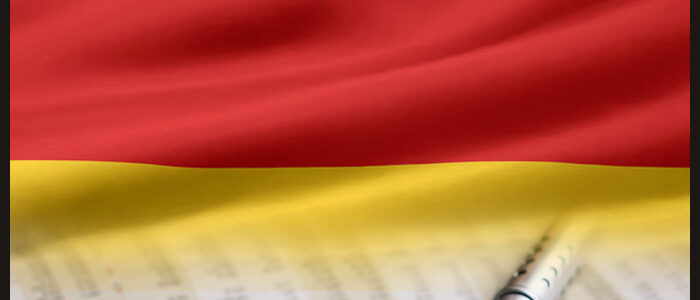
German Ifo Business Confidence Lowest Since May 2020
Germany’s business confidence dropped further in October to reach its lowest level in twenty-nine months as companies were less satisfied with their current business, and were more concerned about the future, survey results from the ifo Institute showed on Tuesday.
The business confidence index decreased marginally to 84.3 in October from 84.4 in September, the Munich-based ifo said. The index was forecast to fall to 83.3.
This was the lowest score since May 2020, when it was 80.2.
“The German economy is facing a difficult winter,” ifo President Clemens Fuest said.
In October, companies were less satisfied with their current business conditions. Meanwhile, their expectations improved, though companies were still worried about the coming months.
The current conditions indicator dropped to 94.1 in October from 94.5 in September. Economists had forecast a reading of 92.4.
The index measuring business expectations increased marginally from 75.3 to 75.6. Economists were looking for a score of 75.0.
The upcoming flash estimate of the German GDP growth is likely to show a contraction in the third quarter.
Flash estimates from Destatis, due on Friday, are expected to reveal a quarterly decline of 0.2 percent in the economic output, following a very modest 0.1 percent expansion in the previous three months.
High energy bills and ongoing inflation are causing companies and households to adjust consumption and investments. Headline inflation hit a record 10.0 percent in September and producer price growth was the highest ever at 45.8 percent.
Germany’s private sector deteriorated at the fastest pace since May 2020, as both manufacturing and service sectors reported steep and accelerated rates of contraction, the latest purchasing managers’ survey by S&P Global showed on Monday.
Among sectors, the ifo business climate index for the manufacturing sector fell again in October due to companies’ more pessimistic expectations. Nonetheless, their assessment of the current situation was somewhat better than it was before.
Data also showed that the business climate indicator for the service sector improved slightly after a plunge in the previous month. While service providers were less pessimistic about the coming months, they assessed their current business as somewhat worse.
Business morale in the trade sector improved in October, thanks to slightly better assessments of the current situation. However, expectations in the retail sector remained markedly bleak.
At the same time, the index for construction showed a further decline, as the assessments of the current business situation fell to their lowest level since January 2016, and both expectations and order backlogs decreased.
“Looking ahead, today’s Ifo index reading suggests that at least business sentiment is forming a trough,” ING economist Carsten Brzeski said. This, however, does not mean that any improvement in the economy is near, the economist added.
Brzeski pointed out that the war in Ukraine has probably marked the end of Germany’s very successful economic business model that excessively relied on the imported cheap energy from Russia and other imported inputs. In turn, the biggest euro area economy thrived on exports of high quality goods to the rest of the world, riding on the globalization wave.
“The country is now forced to accelerate the green transition, restructure supply chains, and prepare for a less globalised world,” the ING economist said. Germany will have to overcome hurdles like a lack of digitalisation, tired infrastructure, and an ageing society for a successful transition of its economic model.
“All of this means that even after the winter recession, no matter how severe it will be, growth will be subdued for a while,” Brzeski said.
Source: Read Full Article